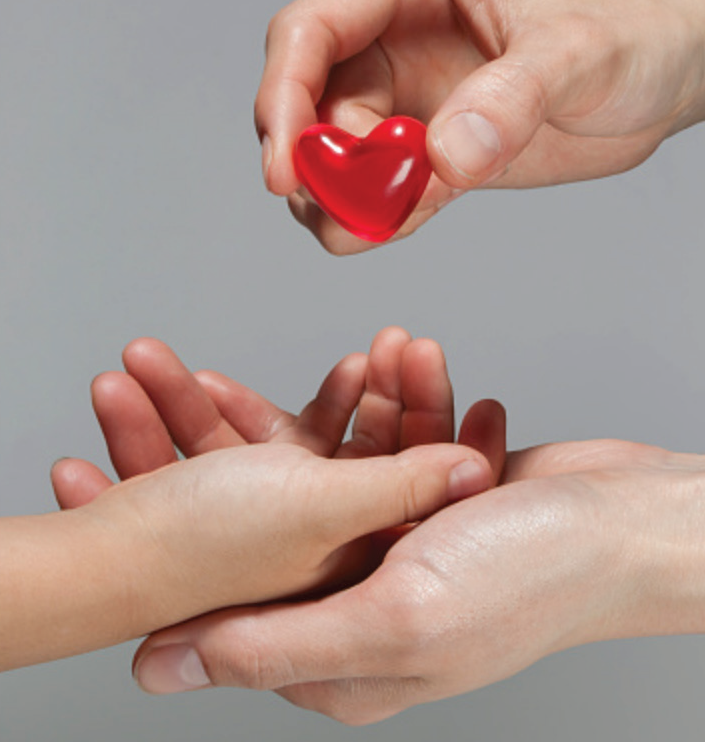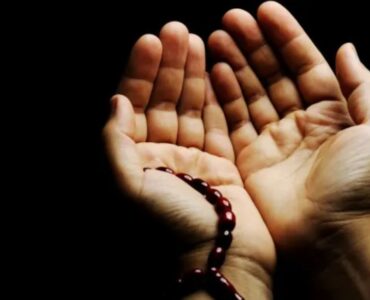By A. Zeynep Dönmez – Özlem Ata Translated from Turkish by Yılmaz Kaşo
A chapter from the book “Friday of the Youth” Sydney, AUSTRALIA
ZAKAH, SADAQAH, AND CHARITY
بِسْمِ اللَّهِ ٱلرَّحْمـٰنِ ٱلرَّحِيمِ
وَفِيۤ أَمْوَالِهِمْ حَقٌّ لَّلسَّآئِلِ وَٱلْمَحْرُومِ
“And in their wealth (the wealth of those who act kindly), there is a rightful share for those who would ask and for the deprived.” (Adh-Dhariyat 51:19)
الْمُسْلِمُ أَخُو الْمُسْلِمِ لاَ يَظْلِمُهُ وَلاَ يُسْلِمُهُ مَنْ كَانَ فِي حَاجَةِ أَخِيهِ كَانَ اللَّهُ فِي حَاجَتِهِ وَمَنْ فَرَّجَ عَنْ مُسْلِمٍ كُرْبَةً فَرَّجَ اللَّهُ عَنْهُ بِهَا كُرْبَةً مِنْ كُرَبِ يَوْمِ الْقِيَامَةِ وَمَنْ سَتَرَ مُسْلِمًا سَتَرَهُ اللَّهُ يَوْمَ الْقِيَامَةِ
“Whoever relieves a Muslim of a burden, God will relieve him of a burden from the burdens of the Day of Rising and whoever covers (the faults of) a Muslim, God will cover (his faults) on the Day of Rising.” (Bukhari, Madhalim, 3; Muslim, Birr, 58 (2580))
Dear youth,
When children are young, they usually do not know how to share. This is from creation. During pre-school education, teachers put effort into teaching children to “share”. As we grow up, we learn about sharing and helping each other and the beauty that they bring to people’s lives. In many verses, Almighty God advises people to spend from what they have without expecting any benefit other than earning the consent of God. Spending from one’s wealth as such is called “infaq”. In surah Al- Baqarah 2:195, those who believe and trust in God are ordered to spend out of their wealth for parents, relatives, orphans, the poor, the destitute, and stranded travelers.
Dear youth,
The Arabic word “sadaqah” is known better than “infaq”. It is often translated into English as “alms” and is mostly used to describe minor donations. According to the Qur’an, however, “sadaqah” is a broad concept that includes all kinds of charity, voluntary giving, and even taxes, without upper or lower limits. In fact, many good actions without a financial basis are also included in the concept of “sadaqah”. For example, there are good behaviors that Prophet Muhammad (PBUH) said to be “sadaqah”, such as pouring water from one’s own bucket into the bucket of a Muslim brother; removing stones, thorns, or troublesome things on the road; guiding someone without a guide; helping a person who cannot see well; even smiling at a fellow Muslim[1].
Dear youth,
As you can see, various supportive endeavors count as “sadaqah” in Islam. All these benevolent acts spread love and mutual respect within society, as well as contribute to the establishment of a more peaceful society. This shows that “sadaqah” is a broader concept than we know. “Every legitimate and beautiful work is sadaqah”[2] as we have heard from the Messenger of God (PBUH). If we conduct our behavior according to this, we will gain rewards of “sadaqah” for many of the deeds we do every day. We have to do this very often because “Sadaqah extinguishes sins just as water extinguishes fire”[3].
Dear youth,
Another type of sadaqah is zakah. It is obligatory for all believers who have a certain amount of money or equivalent value of commodities[4] to give zakah. Zakah is not a favor we do for needy people. As we saw in the verse at the beginning, it is their rightful due. By giving zakah, we are merely giving them back their right. This worship, which is commanded in certain proportions and is made out of our wealth, is called zakah. In the Qur’an, the word zakah is always mentioned with a definite article as “the zakah”. This shows that the word zakah has been known for a long time that is before the Quran. Here we would like to draw your attention to a section from the famous Sermon on the Mount that is attributed to Jesus (PBUH):
“Be careful not to perform your righteous acts before men to be seen by them. If you do, you will have no reward from your Father in heaven. So, when you give to the needy, do not sound a trumpet before you, as the hypocrites do in the synagogues and on the streets, to be honored by men. Truly I tell you, they already have their full reward. But when you give to the needy, do not let your left hand know what your right hand is doing, so that your giving may be in secret. And God, who sees what is done in secret, will reward you.” (Matthew 6:2-4).
Verse 271 of Surah al-Baqarah mentions that keeping our charity secret is better for us. What we want to tell you here is that charity and the recommended form of delivery have been the same since ancient times.
Dear youth,
Where and for whom the zakah will be spent is explained in the Qur’an by being separated into eight classes:
“The expenditures of Sadaqah are only for the poor, the needy, for those employed to collect (sadaqah), and those whose hearts to be won over (for Islam); and in the cause of freeing captives, (for) those in debt, for the cause of God, and (for) the traveler – an obligation (imposed) by God. God is Knowing and Wise.” (Tawbah 9:60)
Dear youth,
The worship of zakah is commanded to believers in many verses in the Qur’an as, “offer the prayer and give the zakah”. Placing the zakah and the prayer in the same context reveals the importance of this worship even more clearly. We hope that when you start making money, you will fulfill this worship properly and you will always give importance to helping others. Thus, we hope that we will be among the saved ones.
[1] Bukhari, Al-Adab al-Mufrad, H:891; Tirmidhi, Birr, 45.
[2] Bukhari, Adab, 33; Muslim, Zakah, 52 (1005).
[3] Ibn Majah, Zuhd, 22 (4210).
[4] 85 grams of gold, or 595 grams of silver, or equal amount of money or commodities








Add comment